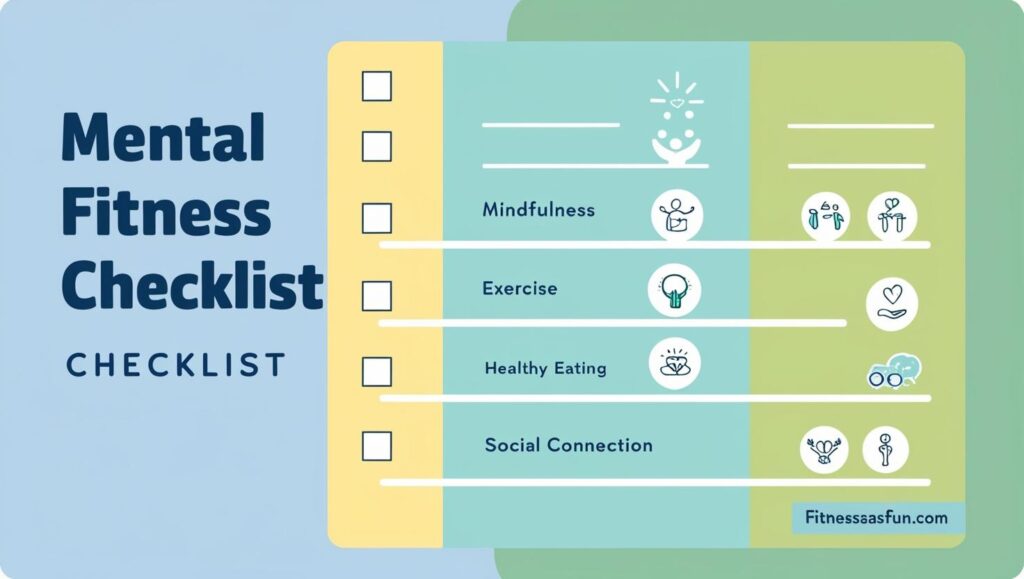You Train Your Body. Why Not Your Brain?
When I first started strength training, I saw visible changes in my body within weeks. But mentally? I was still foggy. Distracted. Overwhelmed. That’s when I realized: just like muscles, your brain needs regular workouts to stay sharp.
Mental fitness isn’t about IQ. It’s about mental agility, focus, resilience, and clarity—qualities anyone can build with the right exercises.
Let’s dive into the mental gym.
Why Mental Fitness Matters More Than Ever

We live in an era of information overload and endless distractions. Your ability to stay mentally strong is your edge.
- Mental fitness improves decision-making
- Boosts your emotional regulation
- Sharpens problem-solving
- Strengthens resilience under stress
- Increases attention span and creative thinking
Without it, even the smartest mind burns out.
7 Proven Brain Workouts You Can Start Today
Forget Sudoku and brain games. The real mental gains come from high-impact cognitive training. Here’s what works:
1. Focused Attention Sessions (10 mins/day)
Pick one task. No multitasking. Set a timer for 10 minutes and go all-in.
- Answer emails? Do just that.
- Reading a book? No phone, no tabs.
- Doing nothing? Perfect. Just sit and breathe.
Why it works: Trains your brain to resist distractions and extend concentration windows.
2. Neuroplastic Reading
Read one article or book chapter outside your comfort zone.
- If you’re a tech nerd, read philosophy.
- If you’re into finance, try poetry.
Why it works: Exposes your brain to new patterns of thinking. Builds cognitive flexibility.
3. Active Recall + Spaced Repetition
Use flashcards (digital or physical) to test yourself, not just re-read.
- Apps like Anki or Quizlet make this easy.
- Spend 15 mins daily on a topic you’re learning.
Why it works: Builds long-term memory strength through deliberate memory strain.
4. Brain Dump Journaling (Evening)

At the end of your day, write down:
- What you learned
- What challenged you
- What you’re grateful for
Why it works: Helps your brain offload mental clutter and improves reflection.
5. Strategic Mind Games (Limit: 30 mins)
Use chess, logic puzzles, or memory card games with strategy.
- Don’t just play—reflect after each session.
- Ask: What was my strategy? How did I adapt?
Why it works: Engages both working memory and abstract reasoning.
6. Mindful Movement (Not Just Meditation)
Try mindful walks, tai chi, or yoga.
- Walk in silence. Observe each step.
- Stretch while breathing consciously.
Why it works: Builds embodied awareness, which connects physical and mental regulation.
7. Weekly Digital Detox Challenge

Pick one evening per week. Go screen-free. No phones. No Netflix. No laptop.
- Read a physical book
- Talk to someone
- Do absolutely nothing
Why it works: Resets dopamine levels and strengthens self-control.
Personal Take: What Changed For Me
After 30 days of consistent brain workouts, I noticed:
- Sharper focus at work
- More creative ideas flowing during walks
- Less procrastination
- Better sleep (thanks to the brain dump)
It’s not magic. It’s mental reps, done daily.
Common Myths to Ditch
- Myth 1: Brain training apps alone are enough
→ False. Most are marketing gimmicks. - Myth 2: Mental fitness = meditation only
→ Wrong. Meditation is great, but it’s one of many tools. - Myth 3: You’re either smart or not
→ Dead wrong. Neuroplasticity proves your brain can grow—at any age.
Quick Checklist: Are You Training Your Brain Daily?

✅ 10 mins focused attention
✅ 15 mins active recall
✅ 1 new topic explored
✅ 1 brain dump at night
✅ 30 mins of mindful movement
✅ 1 digital detox weekly
If you’re checking at least 4/7, you’re on the right track.
Final Thoughts: Build a Mind That Works For You
You wouldn’t expect muscles without lifting weights. So why expect a resilient, focused mind without daily cognitive reps?
Your brain is your operating system. Train it like it matters—because it does.
FAQ
Q: How long does it take to see results from brain training?
Most people notice better focus and clarity in 2–3 weeks of consistent effort.
Q: Is meditation required?
No, but it’s a powerful tool. Start with 2 minutes daily and build from there.
Q: Can older adults improve mental fitness?
Absolutely. Neuroplasticity occurs at all ages. It’s never too late.
Q: How is this different from just being productive?
Productivity is output. Mental fitness is about building capacity and quality of thought.






